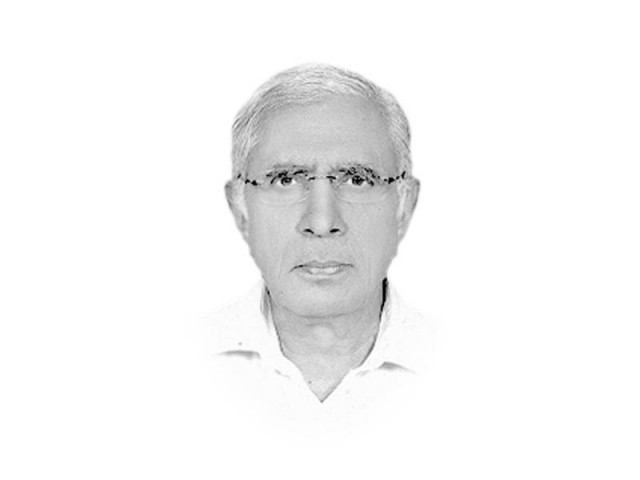Media on the take?
Most effective firewall would be if media owners, practitioners file by March 29 forms similar to nomination papers.

The writer is Executive Editor of The Express Tribune
Since around 2005, as the private media gained in stature while asserting its newly-won freedom, questions about the integrity of some of the media owners and its practitioners have increasingly begun to be asked. Last year, a list went around naming media persons allegedly on the take. A couple was even caught on camera doing a talk show, allegedly pre-sold to a business tycoon. Questions are also being asked about how the so-called secret fund of the information ministry was being spent by the government of the day, who are its beneficiaries and how the advertising budget was being used to buy media favours. It appears as if a good part of the media has become insensitive to such accusations and allegations, preferring to live willingly with the received muck, not bothering about the damage their wagging tongues would cause to the media’s own credibility and its integrity in the longer term. Others who know better seem worried and would like to counter this adverse campaign against the media. It is perhaps, motivated by such sentiments that Mr Hamid Mir of Geo and Mr Absar Alam of Aaj went to the Supreme Court seeking answers to these questions. The SC appointed a two-man Commission headed by Justice (retd) Nasir Aslam Zahid, including former information minister Mr Javed Jabbar. I have appeared before the Commission on invitation and answered a number of very incisive questions. I also submitted to the Commission my own views on why and how a media practitioner falls prey, if he does at all, to financial or other kinds of temptations.
During election time, political parties — despite the restrictions imposed by the Election Commission of Pakistan (ECP) — are known to have found innovative ways to go around these and buy support from wherever they can. Media being the most effective vehicle to publicise their candidacy contestants and their parties, they do make an extra financial effort to influence its editorial bent. They do try their luck both, at the level of owners and the editorial decision-makers. Already a number of scandalous stories are doing the rounds about who is getting the biggest share from the advertising pie of each party and which media professional has sold his/her soul to which candidate or party.
It is, therefore, in the interest of the media itself that it build some kind of firewall against the anticipated onslaught of politicians and their supporters to influence it by buying owners, editorial decision-makers, popular anchorpersons and columnists. I am sure many of my colleagues would know how the media could be enabled to resist the temptations, at least, during election time. Meanwhile, a number of media organisations, including the representatives of media owners, editors and working journalists, have already submitted to the ECP a proposal outlining a code of ethics for election coverage. In my opinion, the most effective firewall would be if all media owners and influential media practitioners were to willingly fill and file by March 29, forms similar (not identical) to the nomination papers developed by the ECP for candidates contesting the forthcoming elections. The ECP can develop such a form for the media in consultation with the APNS, the CPNE and the PFUJ and based on the code of ethics already submitted.
Published in The Express Tribune, March 27th, 2013.

















COMMENTS
Comments are moderated and generally will be posted if they are on-topic and not abusive.
For more information, please see our Comments FAQ